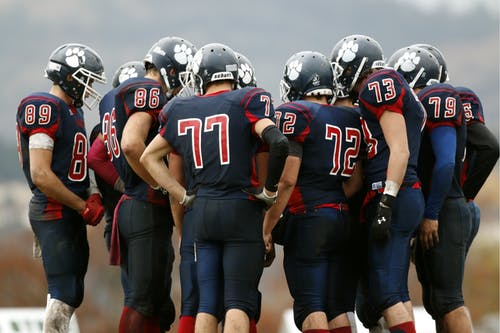Two years at the helm of the New York Jets and Rex Ryan has two trips to the AFC Championship game. He and the Jets earned a spot there with a stunning upset of the New England Patriots on Sunday night and will now take on the Pittsburgh Steelers for a shot at the Super Bowl. Ryan is loud, brash, boisterous, sometimes perhaps obnoxious, funny, motivational and just about any other adjective you can think of. And to many, they’d probably use an adjective not fit for print on this website. But you can’t argue the fact that, at the end of the day, Ryan is proving he’s a helluva coach. As a rookie coach, he helped lead a team with a rookie quarterback this far in the playoffs last year. One year later, the Jets went on the road in back-to-back weeks to take down two of the greatest quarterbacks who have ever played the game. Say what you want about Ryan’s personality, but don’t let it cloud your judgment on his talent as a coach. Rex Ryan joined ESPN Radio New York with The Michael Kay Show to discuss why he takes the blame in defeat but also the praise in victory, why this team is different than last year’s, Bill Belichick’s benching of Wes Welker, the Dennis Byrd speech and how motivational speeches affect players, his chat with Belichick after the game, the Jets’ very difficult road through the AFC playoffs and whether he cares the people still see him more for his personality than his coaching ability.

On how he takes the blame when the Jets lose, but passes the praise to the players when they win:
“I really think that if you’re a competitor, that’s how you look at things. The job of a coach is to prepare your players, get them ready each week. Clearly, I thought we were out-prepared … that Monday night game. … But the players came back and did a great job executing the plan. Their effort was tremendous.”
If it feels different going to the AFC title game this year as opposed to last:
“It does feel different. Last time, we were new to it. We had a rookie quarterback, obviously a rookie head coach, and it was like we had something to prove to the league. Even though we believed in ourself, we might not have been built to go all the way. … I still think our passing game is at a different level now than it was back then. … Last year we were just built on running it.”
On Bill Belichick benching Wes Welker to start the game due to his foot comments:
“That’s his football team, he can do whatever he wants with his team. Somebody said that he wasn’t starting, so we were like, ‘OK.’”
How the idea came about to have Dennis Byrd give a speech the night before the game:
“What happened is he sent me the jersey and a note saying, basically, that he had waited 18 years but he thought it was the appropriate time and he thought I was the appropriate guy to give the jersey to. That blew me away. … I was reading the note and it talked about how that was such a huge thing in his life. … Immediately, we reached out to Dennis and he accepted our invitation to come speak to our team. I wanted our team to hear what he was telling me as well.”
On how motivational speeches affect players:
“I think they do. I think what happens is if they know you’re speaking from the heart, a lot of times that message will hit home. If they just think it’s something you read out of a book … then maybe it doesn’t happen. … I never take a note, I don’t do anything when I speak to the team. It’s blunt-force trauma. I tell them what I believe and most of the time the message gets across.”
On the extended chat at midfield with Belichick after the game:
“I really don’t want to get into the specifics of it, but he knows that I have a great deal of respect for him and I don’t think that he has the same respect for me, but maybe one day he will. I know he respects the fact that I am a real football coach and he knows I’m going to give everything I can to the team.”
If the Jets make it to the Super Bowl, will it be the toughest path ever to get there?:
“It’d be hard for me to see anyone who has taken a tougher route. All on the road. But again, if that’s what it takes to get there, then that’s what we’re committed to do.”
Whether he’s bothered by the fact that the attention of him being a great football coach is sometimes hidden by the fact that everyone sees him as a boisterous guy:
“No. Again, I’m not in it for that. I don’t need credit, I don’t need anything. I’ve been assistant coach of the year before, I’ve done different things. I think when you look at my background, the numbers may give you a different story than what you believe. My numbers, statistically, on defense, will stack up with anybody that’s ever coached this game. I understand I’m an excellent football coach, but the reason I’m an excellent coach is the fact that I work with great assistant coaches and the players, most importantly.”

Comments